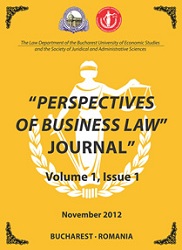BAD FAITH OF EMPLOYEES IN ACTUAL LABOUR LAW -THEORETICAL AND PRACTICAL IMPLICATIONS
BAD FAITH OF EMPLOYEES IN ACTUAL LABOUR LAW - THEORETICAL AND PRACTICAL IMPLICATIONS
Author(s): Stefania DumitracheSubject(s): Law, Constitution, Jurisprudence
Published by: Societatea de Stiinte Juridice si Administrative
Keywords: good faith; bad faith; abuse of rights; labour; employer; employee
Summary/Abstract: In designing the study we started with the analysis of good faith in employment law, from Article 54 of the Romanian Constitution and reaching to Article 8 of the Labour Code. Regarding the bad faith of the employee, it exceeds the scope of abuse of law and must be addressed in relation to the three main stages of any individual labour contract. Thus, when negotiations for a labour contract, bad faith of an employee can occur by breaching of private information disclosed by the employer and by violating the correlative obligation to employer's right to correct information. In disciplinary matters, the form of guilt of the employee who commits a disciplinary offense and his failure to appear at prior disciplinary investigation to which he was called are important for the analyzed issues. Not even termination of an individual labour contract is protected from the event of adopting a malicious behaviour by the employees. The study concludes with launching the opinion that a way to prevent and control this type of behaviour could be the employee's personnel file.
Journal: Perspectives of Business Law Journal
- Issue Year: 2012
- Issue No: 01
- Page Range: 184-192
- Page Count: 9
- Language: English

